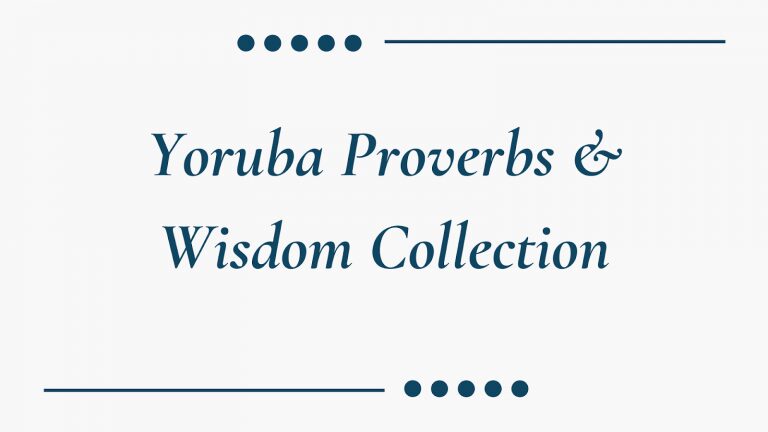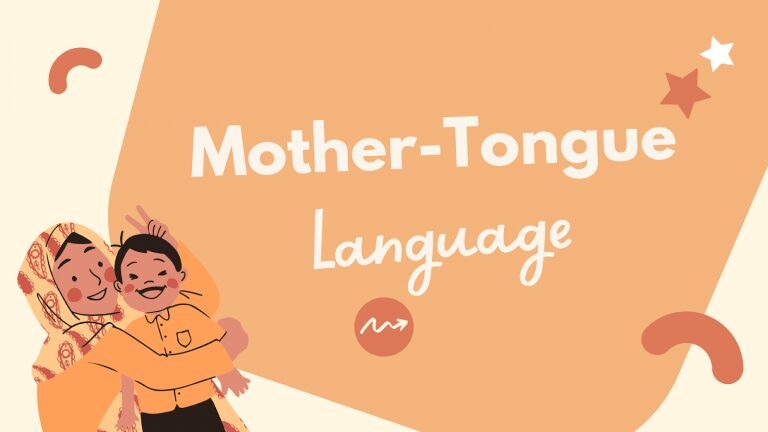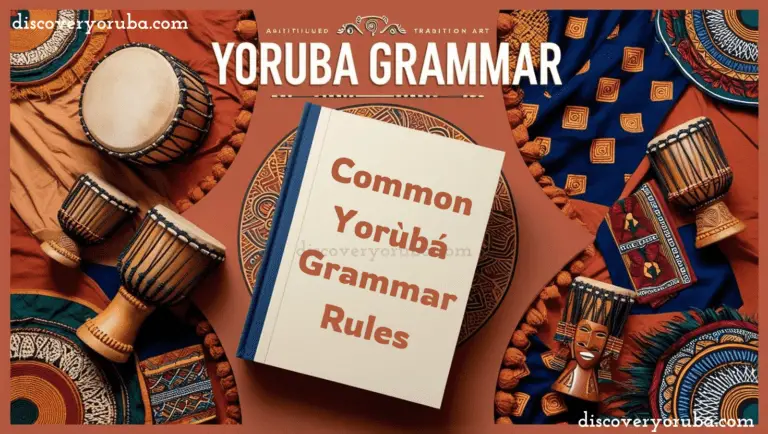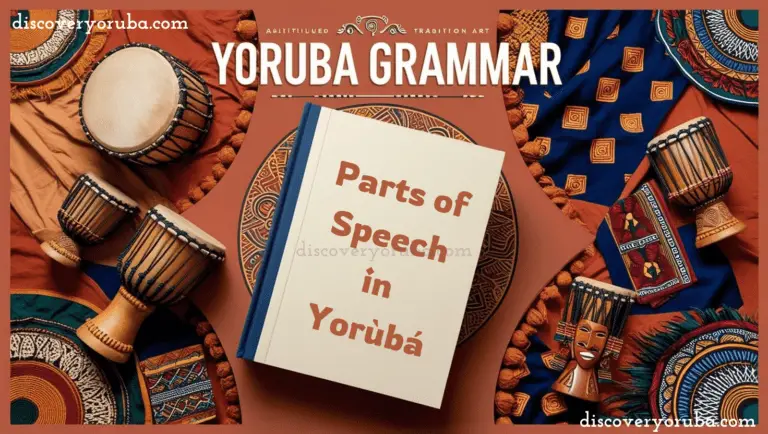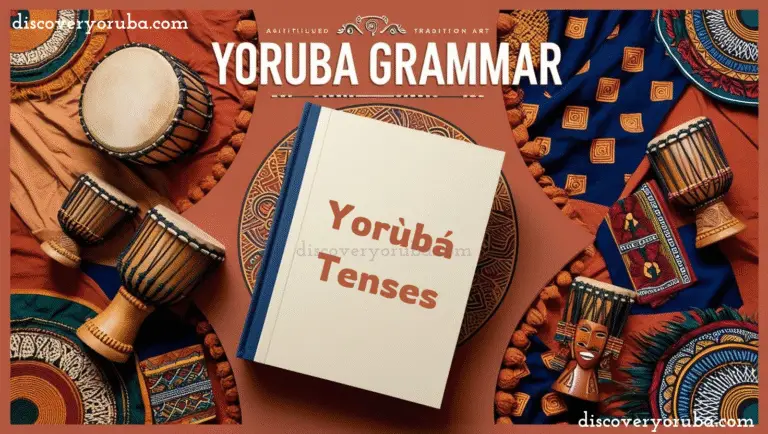DiscoverYoruba.com is your one-stop for embracing Yoruba culture, entertainment, and history unfolding.
Welcome to this session of Yorùbá Question Formation! Let’s pick up where we left off. In our previous post, we discussed Yorùbá Tenses and Negative sentences in Yorùbá. We learnt that Yorùbá tenses are divided into three main parts; the present, the past and the future tense.
a. Present Continuous Tense → (Ìgbà ti a wa [happening now]) e.g.
Mo n ́ jẹun. → (I am eating.)
b. Past Tense → (Ìgbà tó kọjá [happened before]) e.g.
Mo ti jẹun. → (I have eaten.)
c. Future Tense → (Ìgbà tó n bọ [will happen later]) e.g.
Mo máa jẹun. → (I will eat.)
We also discussed Negative sentences which are formed by adding ‘ko’ before the verb e.g
Baba kò ra ọkọ̀ ayọ́kẹ́lẹ́ → (Father did not buy a car.)
If you enjoyed the last post, you’re going to love this one! We will talk about Yorùbá Question formation and Useful tips for learning Yorùbá Grammar.
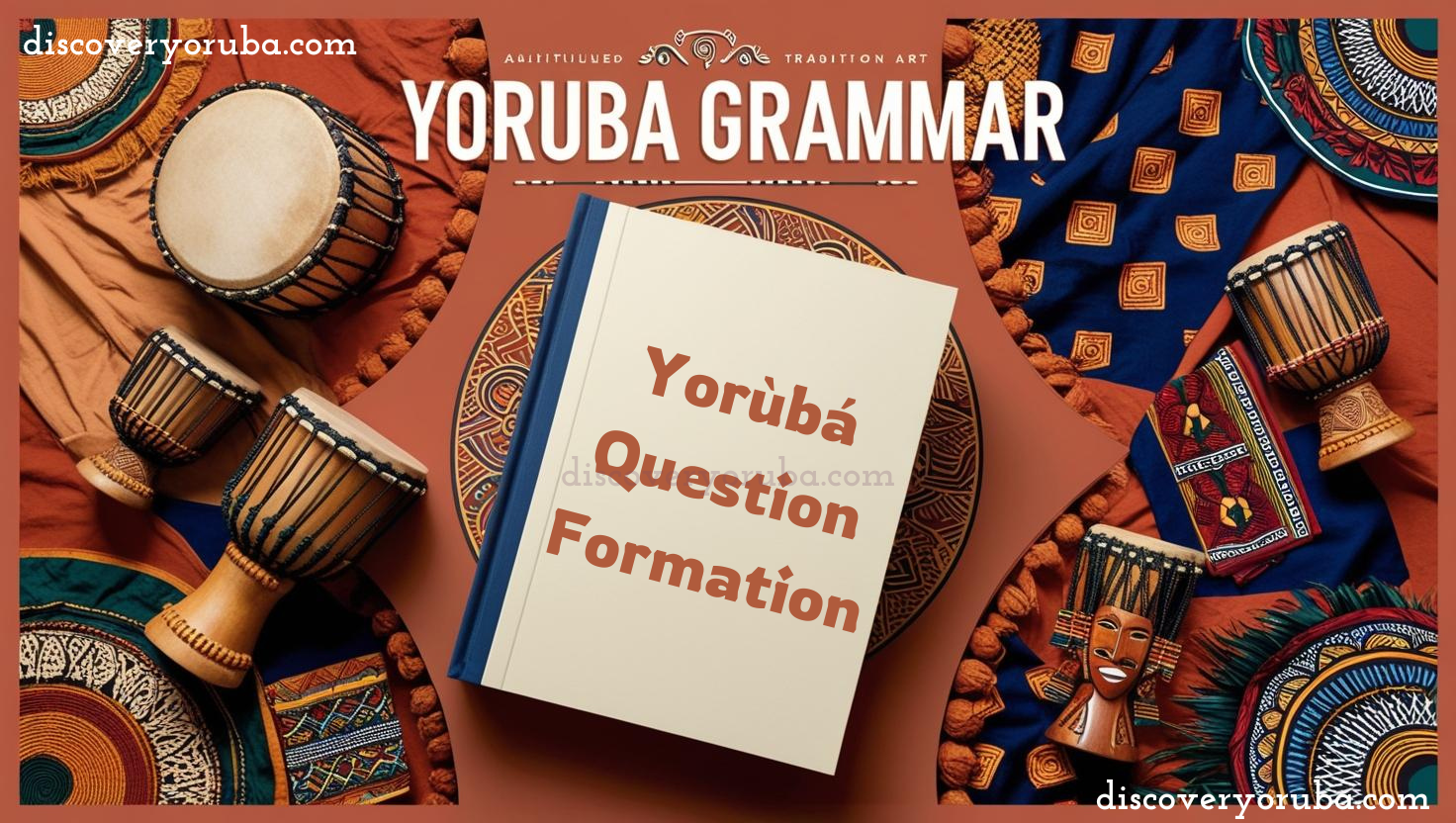
Yorùbá Question Formation
In Yorùbá, questions are typically formed by adding question words or altering the sentence’s tone. e.g.
Nigbà wo ni wọn dé? → (When did they arrive?). When altering the tone, it becomes Wọn de nigba wo? → (They arrived when?)
Here are some common question words:
a. bawo? → how?
b. kini? → what?
c. taani → who?
d. nitori kini? → why?
e. nibo? → where?
Here are some question examples:
1. Kini o fẹ? → (What do you want?)
2. Nibo ni o n lọ? → (Where are you going?)
3. Nigbà wo ni wọn dé? → (When did they arrive?)
4. Nibo lo ngbe? → (Where do you live?)
5. Njẹ́ o n sọ èdè Chinese? → (Does she speak Chinese?)
6. Eelo ni eyi? → (How much is this?)
7. Njẹ́ mo le ran ẹ lọwọ? → (Can I help you?)
8. Kini orúkọ rẹ? → (What is your name?)
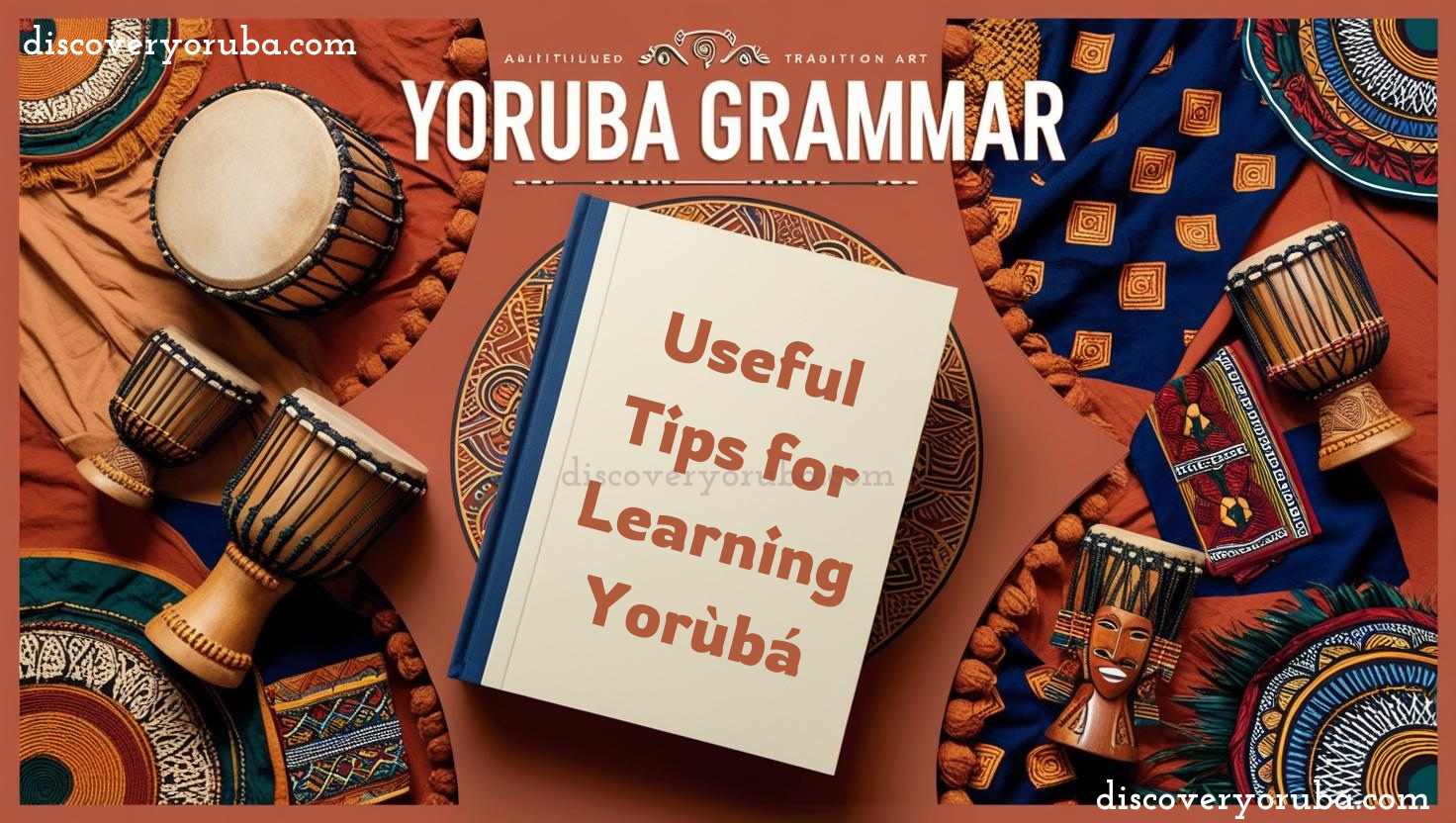
Useful Tips for Learning Yorùbá
Learning Yorùbá can be both fun and rewarding when approached correctly. Here are some useful tips to help you master the language:
1. Practice Regularly: Consistent practice will help you remember the rules and vocabulary. Start by forming simple sentences before progressing to complex ones. The more you practice, the better you get!
2. Listen and Repeat: Listening to native speakers and repeating their phrases can significantly enhance your pronunciation.
3. Listen to Yorùbá Music, Radio, Movies and News: Listen to Yorùbá music, radio, movies, and news broadcasts. Hearing Yorùbá in real-life contexts will improve your listening skills and comprehension.
4. Utilize Learning Resources: Combine various learning methods for better results.
5. Use Visuals: Associating words with images can enhance memory retention.
6. Learn Common Phrases: Start with greetings and everyday expressions. Yorùbá is a highly respectful language, and greetings are essential. Incorporate greetings into your daily conversations to build fluency.
7. Explore Yorùbá Proverbs and Idioms: The Yorùbá language is rich in proverbs, which are commonly used in everyday conversations. Memorizing these proverbs will make your use of Yorùbá sound more natural.
8. Stay Consistent and Patient: Small daily efforts lead to significant improvements over time.
Conclusion
Yorùbá grammar is simple yet expressive. By understanding sentence structure, tenses, negation, common rules, and parts of speech, you can communicate effectively in Yorùbá. Remember, learning Yorùbá becomes easier with consistency. By following this guide, you’ll be on your way to mastering the basics of Yorùbá grammar. Practice makes perfect! Enjoy your journey into the beautiful world of the Yorùbá language.
We would love to hear your thoughts on this post. Let us know if you enjoyed it and would love to see more like this. Which aspect of Yorùbá Grammar did we not cover that you would love to learn about?
References
1. Bamgbose, Ayo. A Grammar of Yorùbá.
2. Awobuluyi, Oladele. Studies in Yorùbá Grammar.
3. UNESCO Language Documentation Project.
4. Yorùbá Grammar Made Easy by Adewale Adejumo.
5. Understanding Yorùbá Language by Kemi Adesina.



